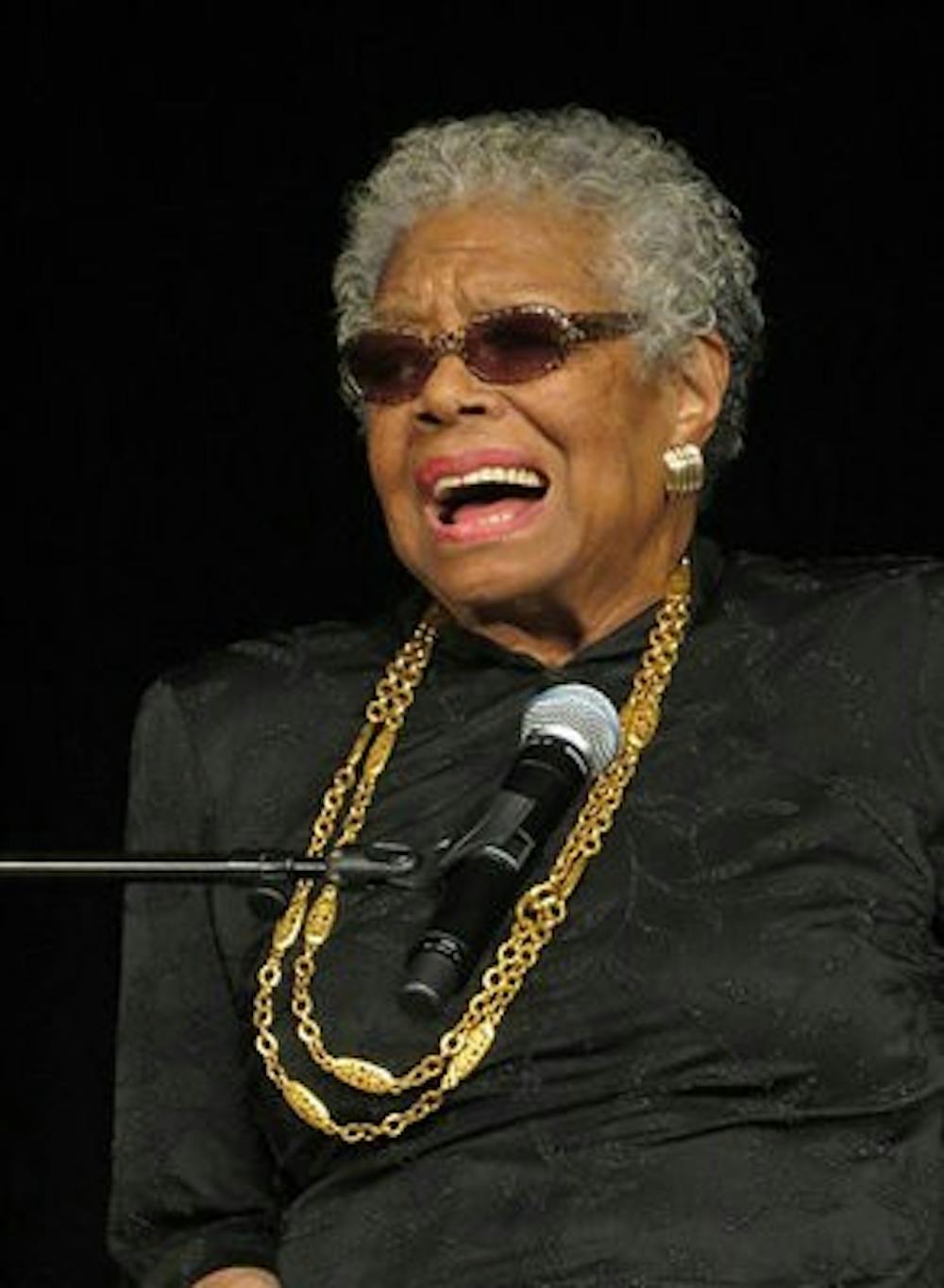Maya Angelou, internationally known author and poet, died in her home in Winston-Salem, North Carolina Wednesday, May 28 after reportedly being in poor health. Angelou published seven autobiographies, three books of essays and several books of poetry. She was also credited with a list of plays, movies, and television shows spanning more than 50 years.
In 2011, President Barack Obama presented Angelou with the highest award a civilian can receive: the Presidential Medal of Freedom. This award recognizes individuals who have made commendable contributions to the security or national interests of the United States, world peace, cultural or other significant public or private endeavors.
In the Fall of 2012, the College of Liberal Arts hosted Angelou as part of an event called "Angelou and the Arts." Following the event, Angelou gave a speech in the sold out Auburn Hotel Conference Center as part of the Women's Leadership Institute Extraordinary Women Lecture Series.
Longtime friend and Assistant Vice President of Access and Community Affairs, Paulette Dilworth, recalled the speech as being your average Maya Angelou speech, which were never truly that average.
"It was pretty typical of Maya," Dilworth said. "I would say it was the little nuggets of wisdom that she always shared with people about life and living and always looking for ways to be hopeful."
Angelou's legacy is ingrained in her artistic works that have influenced many generations by taking a stance for justice, education and equality.
Dilworth remembered her friendship with Angelou starting at Emory University, where Dilworth heard Angelou speak for the first time.
"She came to Emory a couple of times while I was there, but the one time that stuck out to me was the first time I actually met her," Dilworth said. "I actually had a chance to sit with her and talk to her and she was just very authentic, nothing fake, nothing phony."
Dilworth said she was always impressed with Angelou for trying to better people's lives in any way she could.
"I think for me what was always impressive wherever she talked, or whatever talk she gave, it was looking for ways to honor the humanity in people like this whole idea of diversity was important to her or people learning how to live better lives with each other," Dilworth said.
Angelou was known for having immeasurable wisdom and Dilworth said she also seemed to care about each person she encountered, and what was going on in his or her minds.
"She pretty much had what I would characterize as a lot of wisdom to share all the time," Dilworth said. "She was always interested too in knowing a little bit more about you as an individual and what was on your mind."
Angelou had a difficult childhood, which she portrayed in her first autobiography "I Know Why the Caged Bird Sings." The first of three autobiographies debuted in 1969 and vividly portrayed racism in the South.
In one interview, Angelou said she wanted her readers to feel as if they were experiencing what they were reading instead of thinking that they were reading.
"I want to write so well that a person is 30 or 40 pages in a book of mine before she realizes she's reading," Angelou once said.
Dilworth was quick to say that she thought Angelou reached that goal of getting the readers into the story.
"She absolutely did that," Dilworth said. "I read 'I Know Why a Caged Bird Sings' in one night and then was upset with myself because I read it so fast. Then I had to go get the next one. I mean, that's just how she wrote."
While Dilworth does not believe it was Angelou's intention to set the precedent for female writers, she said she certainly believes Angelou did so.
"I think what she showed us was that it is possible to carve out a place for you to tell your story and tell your story the way you want to tell it if you are a woman and you are a writer, " Dilworth said.
Do you like this story? The Plainsman doesn't accept money from tuition or student fees, and we don't charge a subscription fee. But you can donate to support The Plainsman.





